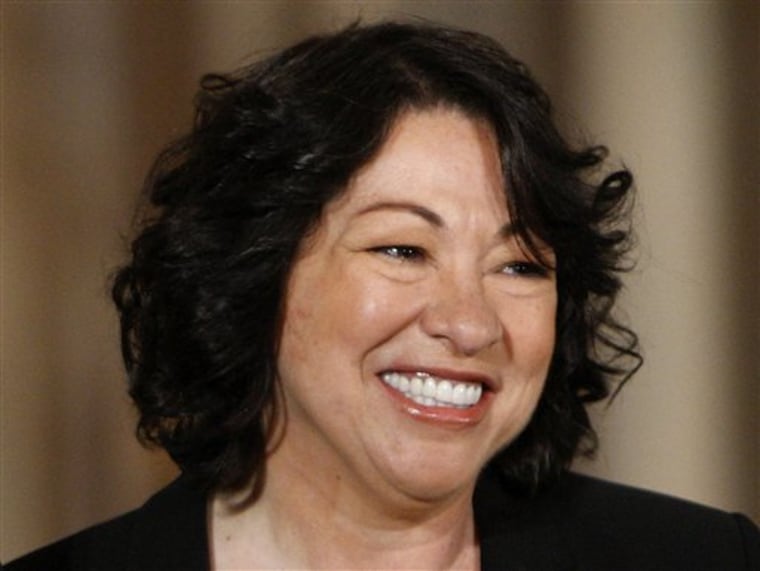When an important reverse discrimination case came before federal appeals court judge Sonia Sotomayor last year, she and two other judges issued an unusually brief decision that went against white firefighters.
The judges' conservative colleagues on the court strongly criticized their terse decision. Today the Supreme Court appears to have serious questions about the ruling as well.
Sotomayor, President Barack Obama's choice to replace Justice David Souter on the Supreme Court, is likely to face questions about her legal reasoning in the case at her Senate confirmation hearing, with Republicans anxious to paint a picture of a liberal judge.
The Supreme Court is expected to rule in the case by the end of June.
At issue is the action of New Haven, Conn., city officials who threw out a promotion exam because no African-Americans and only two Hispanic firefighters were likely to be made lieutenants or captains based on the results.
Criticism from conservative colleagues
Following their decision supporting the city, Sotomayor and her two fellow judges faced criticism from their conservative colleagues on the 2nd U.S. Circuit Court of Appeals in New York for declining to issue a detailed ruling.
The panel, including Sotomayor, had embraced a lower court decision throwing out the test while offering no in-depth analysis of their own.
The court "has failed to grapple with the questions of exceptional importance," the other judges wrote.
The analysis of the case by Sotomayor and the other two judges — one of the most important cases remaining on the Supreme Court's calendar — runs to just six sentences.
Supreme Court evaluation
At Supreme Court arguments in April in the New Haven case, the justices seemed divided. Justice Anthony Kennedy, who often holds the balance, seemed concerned that there should be a strong showing that the test for firefighter promotions was flawed before city officials set it aside.
The New Haven case wouldn't be the first time the justices are evaluating the work of a new or potential colleague.
In an important case in the war on terror, Chief Justice John Roberts didn't participate when the Supreme Court overturned the Bush administration's system of military commissions at Guantanamo Bay in 2006. As an appeals judge, Roberts had ruled in favor of the administration when the case was before the U.S. Court of Appeals for the District of Columbia Circuit.
In the New Haven case, the Civil Service Board "found itself in the unfortunate position of having no good alternatives," the three-judge panel concluded.
"We are not unsympathetic" to the white firefighters' 'expression of frustration,'" the judges wrote in underscoring the difficult issues. One of the white firefighters, who is dyslexic, made intensive efforts that appear to have resulted in his scoring highly on one of the exams, only to have it invalidated.
But that doesn't mean the firefighter had a viable discrimination claim. The bottom line, according to Sotomayor and the rest of the three-judge panel: The city of New Haven was simply trying to fulfill its obligations under federal law when confronted with test results that had a disproportionate racial impact.
The Obama administration, though siding mainly with the city, urged the court to allow the lawsuit to proceed on a limited basis.
